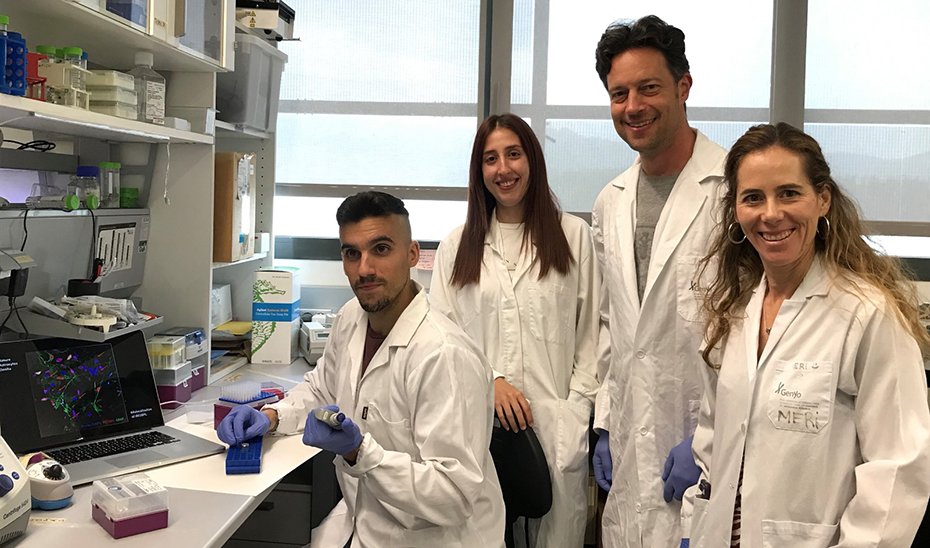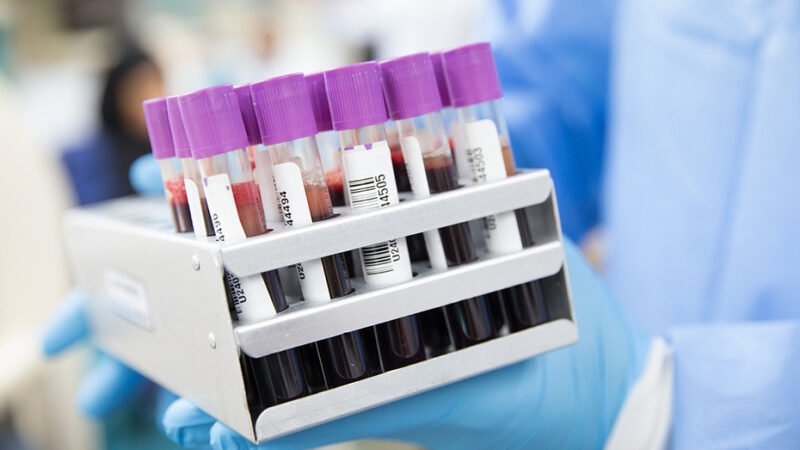Granada, epicentro de investigación en NEDAMSS, enfermedad que afecta a nueve personas en España

The Genyo Research Center in Granada has become a key focus for research on a rare disease called NEDAMSS. This uncommon pathology, which affects nine people in Spain and around 150 worldwide, stems from a mutation in the IRF2BPL gene and has a rapid and fatal progression that deteriorates the patient’s quality of life. The work of Thomas Widmann, a German researcher at the Granada center of the Foundation for Progress and Health, an entity under the Ministry of Health and Consumption, is centered on studying this disease.
Widmann’s project has two approaches. The first is to grow cell lines with the specific variants of the patients as a model of IRF2BPL. The cells are reprogrammed in vitro to neural cells, the most affected tissue in the disease. These induced neural cells are already being used to test and validate potential drugs repurposed for the treatment of the disease (in collaboration with Victoriano Mulero, University of Murcia). In a second approach, Thomas Widmann is modeling the structure of the IRF2BPL protein and predicting its interaction profile with others to find new therapeutic targets.
The research line being developed in Andalusia is joined by two others, led by the Pascual Parrilla Murciano Institute of Biosanitary Research and the Berlin Institute for Medical Systems Biology in Germany.
The ‘Por la sonrisa de Elenita’ association, driven by the family of a girl from Granada affected by this disease, plays an important role in the development of NEDAMSS research, having already raised almost 30,000 euros for the study of this pathology. Additionally, a new association, ‘El ángel de Javi‘, founded by the family of the latest child diagnosed with this disease, has recently joined the fundraising efforts. Other significant support for this research line comes from the University of Granada.
Pediatric monogenic neurodegenerative diseases (END) affect approximately 1% of newborns, posing significant health threats. Significant efforts are being made by the public health system in Andalusia to understand and research these pathologies, many of which fall under the category of ‘rare diseases’ due to their low prevalence. Furthermore, the support of patient associations is also crucial for progress in studying these diseases, which are very complex in nature.
Given that there is currently no cure for NEDAMSS, a multidisciplinary therapeutic approach is being developed, focusing on finding a treatment strategy. In this regard, Thomas Widmann is hopeful of finding a drug that can halt the progression of the disease. Out of around 20 tested, «indications of response» have been observed with three of them.
Despite being focused on a rare disease that affects very few people, Widmann’s research can serve as a basis for expanding the knowledge of other more complex and difficult-to-study neurodegenerative diseases like Alzheimer or Parkinson, as some molecular symptoms of NEDAMSS are shared with these pathologies.

